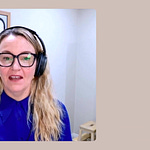Summary
In this episode of the Chalk Dust podcast, Nathaniel Swain and Rebecca Birch are joined by Teach Well General Manager, Katie Webster, and Western Australian primary teacher Kaitlin Rowan to explore the transformative impact of instructional coaching and deliberate practice on classroom teaching.
Through a before–and–after analysis of Kaitlyn’s filmed lessons, the conversation highlights how building routines for full student participation elevates learning, strengthens classroom culture, and accelerates teacher development. The hosts unpack practical techniques from the Teach Well Masterclass Series, including choral response, whiteboards, calling non-volunteers, and gesture-based cues.
The discussion reflects on why explicit instruction routines matter for long-term memory, how production effect and rehearsal strengthen learning, and the role of coaching cycles in helping teachers build fluency and confidence. Importantly, Kaitlyn shares the emotional journey of recording her early practice, receiving targeted feedback, and embedding techniques over time.
The episode reinforces that expert teaching emerges through sustained professional learning, high expectations, and a supportive culture where teachers try, reflect, and refine.
Mentioned resources and explainers
A structured development program supporting teachers to embed high-impact explicit-instruction routines with coaching cycles, rehearsal, feedback, and classroom filming.
Choral Response & Cueing
A technique to promote full participation and rehearsal, improving retention and automating core knowledge. Linked to production effect research and cognitive load theory.
Mini-whiteboards & ‘Hover then Chin-it’
Interactive formative assessment routines ensuring real-time visibility into student thinking. Supports responsive teaching and prevents passive learners.
Cold Calling / Non-volunteers
A technique to ensure high engagement and accountability, normalising contribution and shifting classroom culture towards full participation.
Generative Learning
Strategies that require students to produce responses rather than consuming information passively, improving schema development and transfer.
Explicit Instruction
A structured, teacher-led approach emphasising modelling, checking for understanding, guided practice, and independent practice. Related to Hollingsworth & Ybarra (EDI) and Teach Like a Champion.
Listen or view, and support our work
📨 Substack — sign up
🍏🎧 Apple Podcasts — like, review and follow
🎵💚 Spotify — follow and rate
📺🔔 YouTube — subscribe and like
✍️ Rebecca’s Substack — read more
✍️ Nathaniel’s Substack — read more
Thanks for listening to Chalk Dust! Share with a colleague who enjoys evidence-informed teaching.
Takeaways
Teaching expertise evolves through deliberate practice, coaching, and reflection.
Participation routines enable every student to think, respond, and rehearse.
Production effect and rehearsal improve long-term memory.
Coaching cycles accelerate teacher proficiency through targeted feedback.
Whiteboards, choral response, and non-volunteers boost active engagement.
Full participation is learnable: expectations plus routines create culture.
Gestures and non-verbal cues streamline transitions and maintain pace.
Formative assessment must be visible and actionable.
High expectations are enacted through routines, not slogans.
Classroom culture of safety supports risk-taking and learning from mistakes.
Keywords
explicit instruction, Teach Well, teacher coaching, participation routines, choral response, whiteboards, formative assessment, generative learning, classroom culture, cognitive load, production effect, instructional routines, teaching practice improvement, Chalk Dust podcast, education research, professional learning, teacher development, student engagement, high expectations












